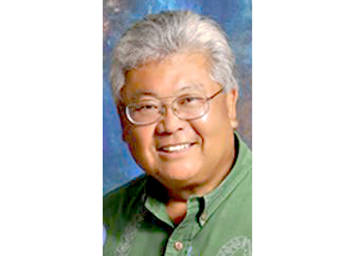HONOLULU — The chairmen of Hawaii’s House and Senate tourism committees expect to meet in the upcoming week to resolve differences over vacation rental tax bills that have passed their respective chambers. ADVERTISING HONOLULU — The chairmen of Hawaii’s House
HONOLULU — The chairmen of Hawaii’s House and Senate tourism committees expect to meet in the upcoming week to resolve differences over vacation rental tax bills that have passed their respective chambers.
Both bills would enable websites like Airbnb to collect state taxes on behalf of people renting rooms and homes.
Short-term rental operators are already required to pay general excise taxes and transient accommodations taxes under current law. But supporters say the legislation could help the state collect $100 million in taxes that are not currently being paid.
The issue is contentious in part because so many vacation rentals operate in violation of county law. This is particularly prevalent on Oahu, where the county has not authorized any new short-term rentals since the late 1980s.
Sen. Glenn Wakai said senators want to set up a taxing mechanism and to push the counties to set up a permitting system for short-term rentals if they have not done so already.
Senators want to make sure the vacation rental and bed-and-breakfast establishments do not negatively affect the communities where they’re located, said Wakai, a Democrat who represents Kalihi and Pearl Harbor.
Rep. Richard Onishi, a Democrat who represents Hilo and Volcano in the state House, said the Senate version includes provisions to enforce county rules. He said this should be left up to the counties, as they each have their own laws and permitting requirements.
He noted the legislation had to satisfy many different stakeholders, including the state tax department, the public, the neighborhoods where vacation rentals are operated, online rental platforms like Airbnb, hotels, hotel worker unions and others.
He stressed that lawmakers do not want the legislation to send a message that the state is legitimizing illegal rentals.
“By all means, we’re not trying to say because we collect appropriate taxes, that these units are permitted or they are legal,” Onishi said.
The Legislature passed similar legislation last year only to have it vetoed by Gov. David Ige, who said he was concerned it would facilitate illegal short-term rentals.
He said encouraging people to rent to visitors instead of residents could exacerbate Hawaii’s severe housing shortage and homelessness crisis.
Onishi said he has been working with the governor’s staff on the issues since the beginning of the legislative session to address his concerns and avoid a similar outcome this year. But Wakai said he has been disappointed at the lack of engagement by the governor’s office with him on the issue.
Ige, when asked about Wakai’s concerns, said he knows his chief of staff, Mike McCartney, has met with Senate and House members on the issue.



